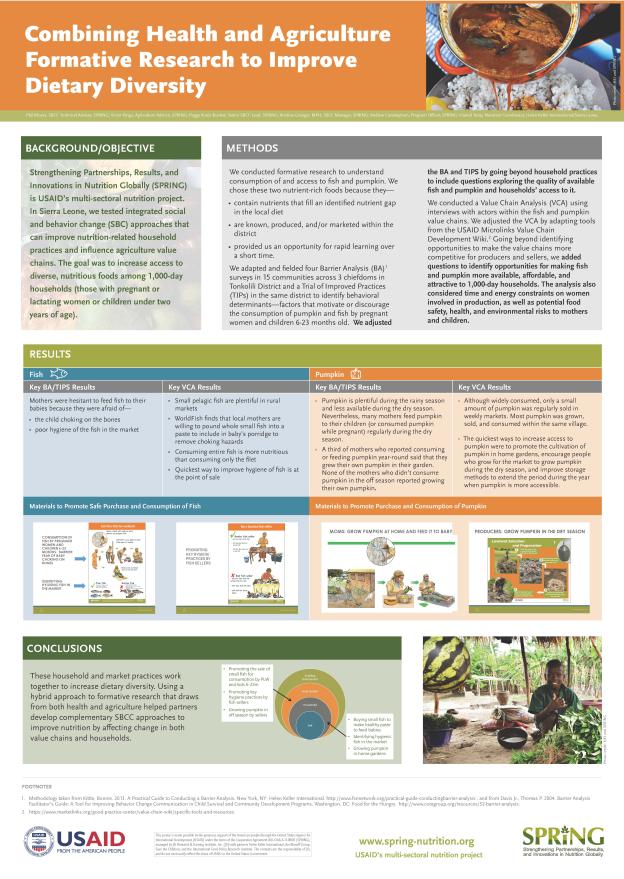In Sierra Leone, SPRING tested integrated social and behavior change (SBC) approaches that can improve nutrition-related household practices and influence agriculture value chains. The goal was to increase access to diverse, nutritious foods among 1,000-day households (those with pregnant or lactating women or children under two years of age).
We conducted formative research to understand consumption of and access to fish and pumpkin. We chose these two nutrient-rich foods because they—
- contain nutrients that fill an identified nutrient gap in the local diet
- are known, produced, and/or marketed within the district
- provided us an opportunity for rapid learning over a short time.
This poster was presented at the 2018 SBC Summit in Bali, Indonesia.
